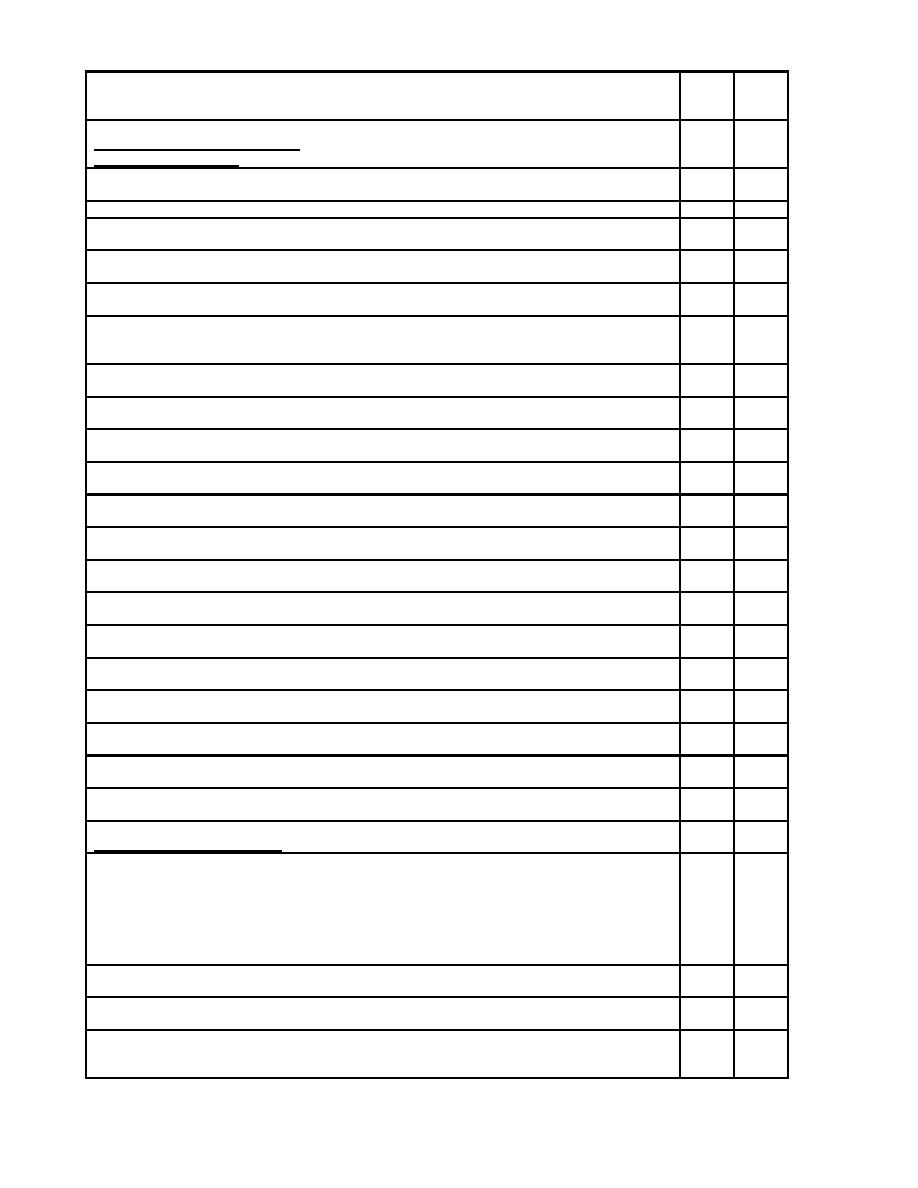

Custom Search
|
|

|
||
 YES
NO
72. If yes, are potable water construction/operating permits needed?
WASTEWATER DISCHARGES
DOMESTIC SEWAGE
73. Will domestic (sanitary) sewage be discharged from the project?
74. Does the project discharge to a sanitary sewage collection system?
75. Will new sewer mains be constructed or will the effluent flow increase?
76. Are construction, operating or sewer extension permits required?
77. Does the discharge flow to a Navy owned STP?
78. Will the discharge affect the ability of the sewage treatment plant to meet the flow
parameters of the NPDES permit? (if yes, a new permit may be required)
79. Is notification of regulatory agencies required?
80. Does the discharge flow to a publicly owned treatment plant?
81. Is notification required?
82. Is a connection permit required?
83. Does the discharge flow to a septic system?
84. Is the septic system new?
85. Is a construction permit required?
86. Is a discharge (to groundwater) permit required?
87. Is the septic system existing?
88. Does it have a permit?
89. Are there flow limitations?
90. Is notification of increased flow required?
91. Does the project involve the construction of a sewage treatment plant?
92. If yes, is a NPDES permit required?
INDUSTRIAL DISCHARGES
93. Is there going to be a discharge of industrial wastewater from the facility? An
industrial discharge can be considered any wastewater generated by any source other
than sanitary facilities, such as sinks, urinals, water closets, and floor drains. Examples
are photographic labs, laundries, plating operations, pesticide-formulation operations,
hospitals, explosive manufacturing, numerous organic and inorganic chemical processes,
and cooling and blowdown water from boilers.
94. Is the discharge going to flow into a sanitary sewage collection system?
95. If yes, is pretreatment required?
96. If yes, is a permit required? (Local ordinances may be required for permits for
any industrial connection)
219
|
 |
|
 |
||